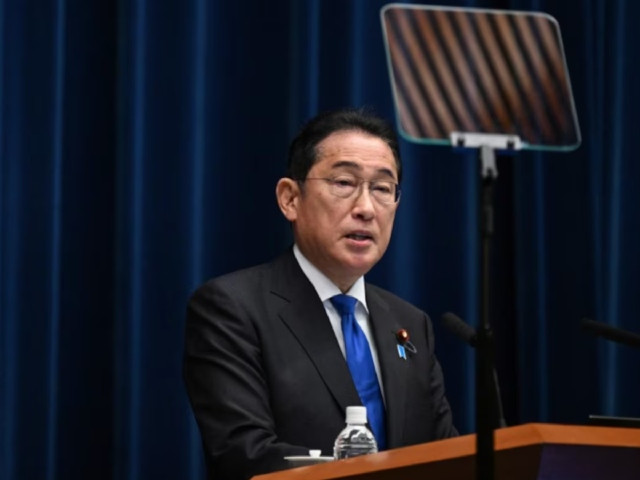TOKYO:
Japanese Prime Minister Fumio Kishida said he will step down in September, ending a three-year term marred by political scandals and paving the way for a new premier to address the impact of rising prices.
“I will continue to do everything I can as prime minister until then end of my term in September,” Kishida said in a televised press conference on Wednesday to announce his decision not seek re-election as Liberal Democratic Party (LDP) leader.
His decision to quit triggers a contest to replace him as party boss, and by extension as the leader of the world’s fourth-biggest economy.
Kishida’s public support eroded amid revelations about the party’s ties to the controversial Unification Church, and more recently, unrecorded political donations made at LDP fundraising parties.
“He’s been a dead man walking for quite some time,” said Michael Cucek, a professor specialising in Japanese politics at Temple University in Tokyo.“There was no way to add up the numbers so that he would get reelected,” he added.
The successor the LDP chooses will have to unite a fractious ruling group and tackle likely further increases in living costs, escalating geopolitical tensions with China, and the potential return of Donald Trump as U.S. president next year.
As the country’s eighth-longest serving post-war leader, Kishida led Japan out of the COVID pandemic with massive stimulus spending, but later appointed Kazuo Ueda, an academic tasked with ending his predecessor’s radical monetary stimulus, to head the Bank of Japan (BOJ).
Samsung Electronics faces another strike this week.
The BOJ in July unexpectedly raised interest rates as inflation took hold, contributing to stock market instability and sending the yen sharply lower.
Kishida’s departure could mean tighter fiscal and monetary conditions depending on the candidate, according to Shoki Omori, chief Japan desk strategist, Mizuho Securities, Tokyo.
“In short, risk-assets, particularly equities, will likely be hit the most,” he added.
In another break from the past, Kishida also eschewed corporate profit-driven trickle-down economics in favour of policies aimed at boosting household incomes, including wage hikes and promoting share ownership.







